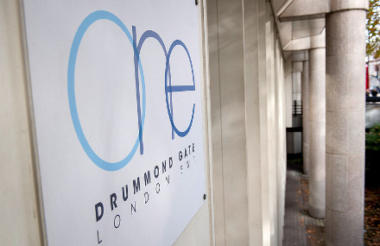Some of the Charity Commission’s new powers “threaten the independence of charities”, NCVO has said in its response to a Commission consultation on new powers to disqualify trustees.
The umbrella body said that the Commission’s current policy document, outlining how it plans to use its new powers, “leaves room for considerable subjective decision making” and says the Commission has not provided enough detail about how it intends to use its powers.
New powers relating to disqualification of trustees were introuduced by the Charities Act this year. The Commission opened a consultation in May alongside a policy document outlining how it plans use the new powers. The deadline for submissions was yesterday.
Insufficient safeguards
“We are supportive of many of the provisions of the Act,” said the NCVO response. “But we continue to have concerns that some of these new powers lack sufficient safeguards and threaten the independence of charities.”
NCVO said it supports the principle that the Commission should be able to disqualify trustees, but made several recommendations to improve the Commission's policy document.
“NCVO is in principle supportive of equipping the Commission with a discretionary disqualification power, but there need to be appropriate safeguards in place that provide clarity and transparency about how the power would be exercised,” the response said.
The response criticised the draft guidance published by the Commission because it “fails to provide sufficient detail and practical examples for many trustees to feel confident about their position and how they might be affected”.
In May the Charity Commission outline the three ‘tests’ that needed to be met before it uses the power. The first test outlined six conditions, one of which needed to apply before disqualification could be considered.
NCVO said: “We remain concerned that – although the three stage test outlined superficially appears to be robust – in fact it is insufficiently defined and lacks appropriate objective criteria by which to measure the reasonableness of the Commission’s decision.”
The Commission says it can remove a trustee if they have been involved in “conduct, whether or not in relation to a charity that is, or is likely to be, damaging to public trust and confidence”.
NCVO said this definition is too vague.
“It is especially important for the guidance to provide clear and specific examples," the response says. "But on the contrary the policy paper similarly uses vague and open wording referring to what the Commission’s ‘view’ ‘might’ be.”
Needs to provide more examples
It also urged the Commission to provide further examples of what would be considered “misconduct and mismanagement” because the ones given are too vague.
“It will be difficult for trustees to understand how they might apply in practice,” the response says.
NCVO said it also had concerns about how the Commission assesses whether a person is unfit to be a trustee and said that “the criteria of ‘honesty and integrity’ and ‘credibility’ are broad concepts and leave a considerable amount of discretion to the Commission” which, despite the Commission’s indications of how it would behave, means the “overall result is a test that continues to be too subjective”.
NCVO also raised concerns about the Commission plan to assess whether disqualification is in the public interest.
“We question the appropriateness of basing its decision also on whether the public would trust the individual in running the charity, and making use of the surveys it undertakes into public trust and confidence.” NCVO said. “We do not believe that what the public thinks should be a key factor in making use of a regulatory power and disqualifying individuals from their role as trustees.”
The Charity Commission will publish a summary of the responses to the consultation within three months and use them to "help shape its approach to using this new power".









